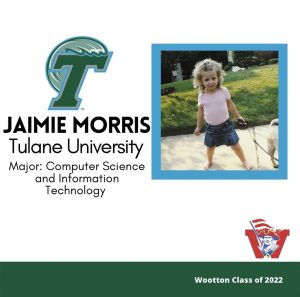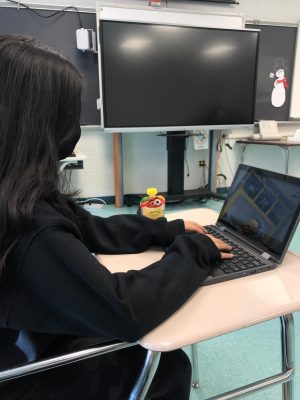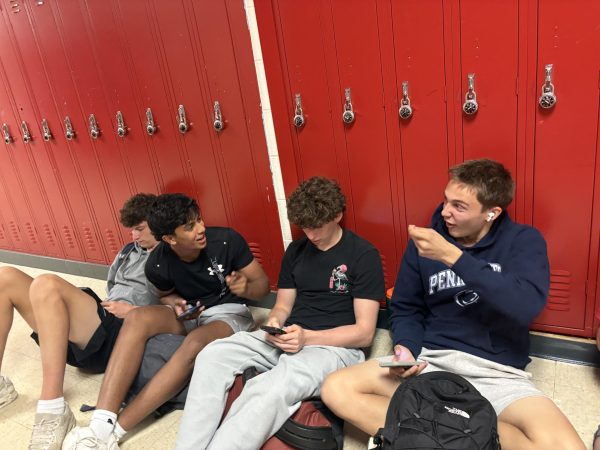As seniors prepare for life after high school, parents weigh in with helpful career advice
Image by Ade Akinrujomu used with permission from Google Commons
Seniors are faced with hundreds of options for majors in college, ranging from Biocomputational Engineering to Religions of the Ancient Middle East.
As seniors commit to college, they are faced with a challenging next question: what are they going to major in? Colleges offer hundreds of majors and pre-career tracks, which can be overwhelming, especially as most seniors do not know what jobs they would like as adults. To help with this, parents from a wide range of career paths explain their jobs and give advice.
Dr. Audrey Thurm, Ph.D, clinical psychologist
Dr. Thurm performs research at the NIH with other psychologists to help children and families. For this, she plans studies, analyzes data and results, and shares those results with others. “Studies may be helping us understand more about the natural history of a condition, or helping us understand if a new treatment may be effective in helping children to have better outcomes,” Thurm said.
To become a clinical psychologist, Dr. Thurm explained that you need both an undergraduate and graduate degree. To be licensed to practice, you also need a doctorate, which can be up to 12 years of higher education total. “While in graduate school for this doctorate degree, you learn about how to do research. Some clinical psychologists work in research, and others work in clinical settings that do not include research,” Thurm said.
Thurm said that psychology is a good field for those interested in helping people with their mental health, but there are other ways to support people in this way including social work and counseling. “Someone looking to enter this field should know that it requires a big commitment and several years in graduate school, but the field is very rewarding because you are able to help people directly,” Thurm said.
Keith Burnham, West Point Military Academy graduate and math teacher
After high school, Burnham attended West Point Military Academy, where he was able to obtain a degree in aerospace engineering for free, but in return owed five years of military service. He served these in Fort Lewis, Washington, before moving to D.C. for his wife. “I thought it was my turn to give up the Army, which was my career path because we both could get a good job outside the Army whereas only I was going in a certain direction in the Army,” Burnham said.
Burham’s first job in D.C. was at what is now known as the Accountability Office, which ensures that the money Congress spends is being spent appropriately. After two years, he went back to school to become a teacher. “[The Accountability Office] didn’t have the same excitement that the Army had because the Army you are always moving, though there’s some politics that go in there.”
Burnham said he would recommend both paths, military service and teaching, to students. Students dedicated to service and dedication to their country should consider a career in the military. “I would tell people who do not know what they want to do in life, if they are not sure of that, the military service…is a great way to get a skill and serve the country,” Burnham said.
For students interested in teaching, Burnham explains that it is a balancing act. The best teachers are able to make personal connections with students and convey to them why the subject they are learning is important. “You have to balance when you’re a teacher. You have to come with the area of expertise you’re teaching, obviously but… you have to be able to build relationships with the people you’re teaching,” Burnham said.
Salman Sadiq, attorney
As counsel to a private regulatory organization, Sadiq works on investigations, which involves reviewing documents, drafting requests for information and giving advice on the potential benefits of an investigation. In addition to an undergraduate education, attorneys need to complete an additional three years of law school and pass the bar to legally practice law.
Sadiq said there are different types of lawyers, many of which will never actually argue a case in court. In addition to actually practicing law, a law degree is also relevant to business and management positions. “A law degree is a versatile degree that allows one to pursue careers in the business and legal world. For those who do plan to practice law, there is a lot of research and writing,” Sadiq said.
Sadiq says that law is a good profession for driven people who understand the hard work it will take to achieve their professional goals. “Generally successful lawyers are those that have good organizational skills, research and writing skills, and strong communication skills. And I also add that those individuals have good problem solving abilities,” he said
Dr. Ryan Keneally, anesthesiologist
Dr. Keneally is the Residency Director in charge of training residents at George Washington University. As an anesthesiologist, he puts patients under anesthesia during procedures and communicates with families. “It is also important to understand that you are in a position where you could possibly hurt someone, so you have to take your job very seriously,” Keneally said.
Keneally was a history and biology double major for undergraduate school. After that, anesthesiologists are expected to do four years of medical school and four years of residency training. Despite this time commitment, Keneally said he finds his work fulfilling. “I love the concrete sense that I have helped someone. It is not an eventual payoff, I know that right then and there I have helped someone,” Keneally said.
Keneally recommends anesthesiology to students who are OK working in the background, instead of directly with patients. “Other doctors get to have patients come back and thank them and how much you appreciate them, so you have to be OK with doing a very challenging job in the background,” Keneally said.
Vishal Giare, engineer
Giare works at Johns Hopkins in the Applied Physics Laboratory, which involves using science and technology to defend against national security threats. There is no average day at the office for an engineer. “Our work could involve developing a computer model to simulate the flight of a complex missile interceptor to ensure it intercepts the hostile missile…or it could be researching new technologies using artificial intelligence and machine learning to improve our ability to track and identify incoming hostile missiles,” Giare said.
Engineers need to complete a Bachelor’s degree in an engineering field, including electrical or mechanical engineering. Besides engineers, Giare’s work relies on other experts like physicists and mathematicians to design defenses against air and missile threats. “Many of our staff also complete advanced degrees such as a Master’s and Doctoral degrees in these areas,” Giare said.
Giare said engineering is great for STEM students who are interested in solving complex problems. Engineers need to be able to bring together different math and science disciplines to create solutions. “I would highly recommend it – if you enjoy solving complex problems, then engineering of some form is likely for you,” Giare said.
Your donation will support the student journalists of Thomas S. Wootton High School. Your contribution will allow us to purchase equipment and cover our annual website hosting costs.
Ellie Cowen is a 2022 graduate.










